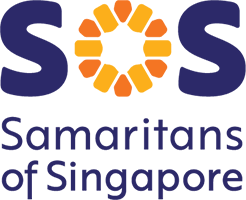SOS Holds Annual Event To Support Loved Ones Left Behind After A Suicide
The Samaritans of Singapore (SOS) commemorated the International Survivors of Suicide (ISOS) Loss Day event on 23 November 2019 and saw the participation of over 40 survivors of suicide loss. Since 2014, SOS commemorates ISOS Loss Day with suicide loss survivors through various events. This year, SOS saw registrations of survivors from overseas participants from Indonesia and South Korea.
A survivor of suicide is anyone affected by the suicide death of a loved or close one, such as family members, friends, and colleagues. Research indicates that at least 6 survivors are affected by a suicide death.
ISOS Loss Day is an initiative by the American Foundation of Suicide Prevention (AFSP), where people affected by suicide loss gather in their local communities to find comfort and remember those they have lost. This year’s event featured a screening of Pathways to Healing: Hope after Suicide Loss, an AFSP produced documentary.
This private, closed door event was aimed at creating a private, confidential safe space for suicide loss survivors. In this event, survivors share their personal journey through healing and how they make meaning after a suicide loss with other survivors. For many survivors, this event symbolises an environment where every individual understands the despair of losing a loved one to suicide, and are able to seek solace from a community who have gone through and experience similar pain and loss.
8 years ago, Rachel* was in disbelief when she lost her husband to suicide. Her main resource that helped her cope with the grief was connecting with others in SOS’ bereavement support group.
She shared:
I got to know another member who also lost her husband to suicide. Hearing her grief journey gave me a lot of encouragement and helped me to realise that healing is possible.
Said Ms Wong Lai Chun, Senior Assistant Director at SOS:
The grief after a suicide often carries with it intense feelings of stigmatisation, shame and embarrassment that may last a lifetime. The sense of rejection and the inability to express their grief may lead to social isolation, which inversely affects the grieving from receiving support. said Ms Wong Lai Chun, Senior Assistant Director at Samaritans of Singapore (SOS).
When Mark* lost his teenage son to suicide in 2015, he was not able to cope with the overwhelming sense of guilt, sadness and fear. A great amount of time was spent pondering about the “what ifs” and “why” in search of answers to make sense of what happened. “I used to feel I was all alone in this. No one understands me” was a recurring thought Mark had that highlights the sense of loneliness suicide survivors often experience. In an interview, Mark shared that by being vulnerable and seeking support from loved ones and professionals had helped him to manage the pain and begin his recovery process.
Ms Wong added:
“the community must recognise the impact a suicide death leaves on the loved ones who were left behind and learn that they cannot simply move on from their loss – but instead require a supportive and understanding environment to allow them to heal.”
*Names of clients have been changed to protect the identity and privacy of the individuals.




